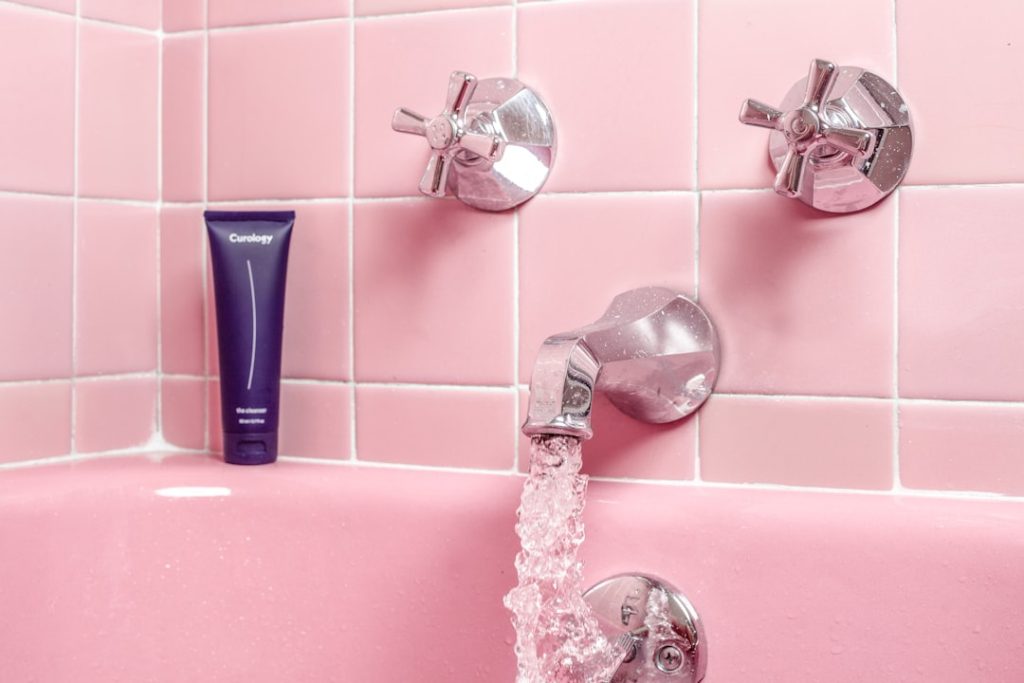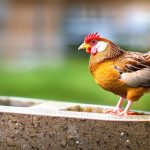Proper nutrition is crucial for pets’ overall health and well-being. A balanced diet that meets their specific nutritional requirements should include high-quality commercial pet food, fresh fruits and vegetables, and occasional treats. Veterinary consultation is recommended to determine the optimal diet based on the pet’s age, breed, and any existing health conditions.
Constant access to clean, fresh water is essential. Monitoring portion sizes is important to prevent obesity and other health issues. Overfeeding can lead to weight gain and related problems, while underfeeding may result in malnutrition and deficiencies.
Following feeding guidelines provided by pet food manufacturers and adjusting portions based on the pet’s activity level and individual needs is advisable. Proper nutrition helps maintain a healthy weight, supports the immune system, and promotes longevity in pets.
Table of Contents
- 1 Clean Living Conditions
- 2 Regular Veterinary Check-ups
- 3 Parasite Prevention
- 4 Exercise and Enrichment
- 5 Biosecurity Measures
- 6 Monitoring and Observation
- 7 FAQs
- 7.1 What are some common health issues that backyard chickens may face?
- 7.2 How can I prevent health issues in my backyard chickens?
- 7.3 What should I include in my backyard chickens’ diet to keep them healthy?
- 7.4 How can I keep my backyard chickens safe from predators?
- 7.5 What vaccinations do backyard chickens need to stay healthy?
- 7.6 How often should I clean my backyard chickens’ coop to maintain their health?
Key Takeaways
- Proper nutrition is essential for the overall health and well-being of your pet.
- Clean living conditions help prevent the spread of diseases and maintain a healthy environment for your pet.
- Regular veterinary check-ups are important for early detection and prevention of health issues.
- Parasite prevention, such as flea and tick control, is crucial for your pet’s health and comfort.
- Exercise and enrichment activities are necessary for your pet’s physical and mental stimulation.
Clean Living Conditions
Keeping the Living Area Clean
It is important to keep your pet’s living area clean and free of debris, as well as regularly wash their bedding and toys to prevent the buildup of bacteria and parasites.
The Importance of Regular Grooming
Additionally, regular grooming, such as brushing and bathing, can help prevent skin issues and matting of the fur.
Proper Waste Management for a Healthy Environment
Proper waste management is also essential for maintaining clean living conditions. This includes regularly cleaning up after your pet both indoors and outdoors, as well as providing a designated area for them to relieve themselves. Proper waste management not only helps prevent the spread of disease and parasites but also creates a more pleasant living environment for both you and your pet. By maintaining clean living conditions, you can help prevent the spread of illness and disease, reduce the risk of skin and coat issues, and create a safe and comfortable environment for your pet.
Regular Veterinary Check-ups

Regular veterinary check-ups are essential for monitoring your pet’s overall health and addressing any potential issues before they become serious. It is important to schedule annual wellness exams with a veterinarian to assess your pet’s physical condition, conduct routine screenings, and administer any necessary vaccinations. These check-ups also provide an opportunity to discuss any concerns or changes in your pet’s behavior or health with a professional.
In addition to annual check-ups, it is important to seek veterinary care if you notice any signs of illness or injury in your pet. This includes changes in appetite, energy levels, behavior, or any physical symptoms such as vomiting, diarrhea, or limping. Early detection and treatment of health issues can help prevent them from progressing into more serious conditions and improve the overall quality of life for your pet.
By prioritizing regular veterinary check-ups, you can ensure that your pet receives the necessary care to maintain their health and well-being.
Parasite Prevention
Parasite prevention is an important aspect of maintaining your pet’s health and well-being. Common parasites such as fleas, ticks, heartworms, and intestinal worms can cause a range of health issues for pets, including skin irritation, anemia, and even life-threatening conditions. It is important to consult with a veterinarian to develop a parasite prevention plan that is tailored to your pet’s specific needs based on their lifestyle and risk factors.
Preventative measures may include regular use of flea and tick prevention products, heartworm medication, and deworming treatments. Additionally, it is important to keep your pet’s living environment clean and free of potential sources of parasites, such as standing water or areas with high flea and tick activity. By implementing a comprehensive parasite prevention plan, you can help protect your pet from the harmful effects of parasites and reduce the risk of related health issues.
Exercise and Enrichment
Regular exercise and mental stimulation are essential for maintaining the physical and mental well-being of your pets. Physical activity helps pets maintain a healthy weight, build muscle strength, and release excess energy. This can be achieved through activities such as daily walks, playtime, and interactive toys that encourage movement.
Mental stimulation is also important for preventing boredom and behavioral issues in pets. This can be achieved through activities such as puzzle toys, training exercises, and interactive play. In addition to providing regular exercise and mental stimulation, it is important to create a safe and enriching environment for your pet.
This includes providing access to toys, scratching posts (for cats), and other forms of environmental enrichment that encourage natural behaviors. By prioritizing exercise and enrichment, you can help prevent obesity, reduce stress and anxiety, and promote overall physical and mental well-being for your pet.
Biosecurity Measures

Quarantine Protocols for New Pets
When introducing a new pet into your home, it is essential to quarantine them from existing pets for a period of time to monitor for any signs of illness or disease. This allows you to identify any potential health issues before they spread to other pets in the household.
Good Hygiene Practices
Practicing good hygiene when handling pets is crucial in preventing the spread of disease. This includes washing your hands after handling animals or cleaning up waste, as well as regularly cleaning and disinfecting living areas.
Maintaining a Healthy Environment
By implementing biosecurity measures, you can help protect your pets from potential sources of illness and maintain a safe and healthy living environment. This includes proper sanitation of living areas, limiting exposure to potential sources of illness, and regularly monitoring for signs of disease.
Regular cleaning and disinfection of living areas can also help prevent the spread of illness and disease among pets. By taking these precautions, you can ensure a healthy and happy environment for your pets.
Monitoring and Observation
Regular monitoring and observation of your pets are important for detecting any changes in their health or behavior. This includes paying attention to their eating habits, energy levels, bathroom habits, and overall demeanor. Any changes in these areas could be indicative of an underlying health issue that requires attention from a veterinarian.
In addition to monitoring physical symptoms, it is also important to observe your pet’s behavior for any signs of stress or anxiety. This includes changes in social interactions with other pets or family members, as well as any signs of fear or aggression. By staying attentive to your pet’s behavior and overall well-being, you can identify potential issues early on and seek appropriate care to address them.
In conclusion, prioritizing the health and well-being of your pets requires a combination of proper nutrition, clean living conditions, regular veterinary check-ups, parasite prevention, exercise and enrichment, biosecurity measures, and monitoring and observation. By implementing these practices into your pet care routine, you can help ensure that your pets live long, healthy lives with a high quality of life.
If you’re interested in keeping backyard chickens healthy, you may also want to learn about what geese can eat. Poultry Wizard has an article on whether geese can eat chicken feed that could provide valuable information for anyone looking to raise multiple types of poultry. Understanding the dietary needs of different birds can help ensure the health and well-being of your entire flock.
FAQs
What are some common health issues that backyard chickens may face?
Some common health issues that backyard chickens may face include respiratory infections, parasites (such as mites and lice), egg binding, and nutritional deficiencies.
How can I prevent health issues in my backyard chickens?
To prevent health issues in backyard chickens, it is important to provide a clean and well-ventilated coop, offer a balanced diet, regularly clean and inspect the chickens for signs of parasites, and provide access to fresh water at all times.
What should I include in my backyard chickens’ diet to keep them healthy?
A healthy diet for backyard chickens should include a balanced commercial feed, fresh fruits and vegetables, and access to grit and oyster shell for calcium and digestion.
How can I keep my backyard chickens safe from predators?
To keep backyard chickens safe from predators, it is important to secure the coop with sturdy fencing, lock the coop at night, and consider using motion-activated lights or alarms to deter predators.
What vaccinations do backyard chickens need to stay healthy?
Backyard chickens may need vaccinations for diseases such as Marek’s disease, Newcastle disease, and infectious bronchitis. It is important to consult with a veterinarian to determine the appropriate vaccinations for your flock.
How often should I clean my backyard chickens’ coop to maintain their health?
It is recommended to clean the coop at least once a week, removing soiled bedding and replacing it with fresh, clean bedding. Additionally, the coop should undergo a thorough deep cleaning a few times a year.
Meet Walter, the feathered-friend fanatic of Florida! Nestled in the sunshine state, Walter struts through life with his feathered companions, clucking his way to happiness. With a coop that’s fancier than a five-star hotel, he’s the Don Juan of the chicken world. When he’s not teaching his hens to do the cha-cha, you’ll find him in a heated debate with his prized rooster, Sir Clucks-a-Lot. Walter’s poultry passion is no yolk; he’s the sunny-side-up guy you never knew you needed in your flock of friends!







